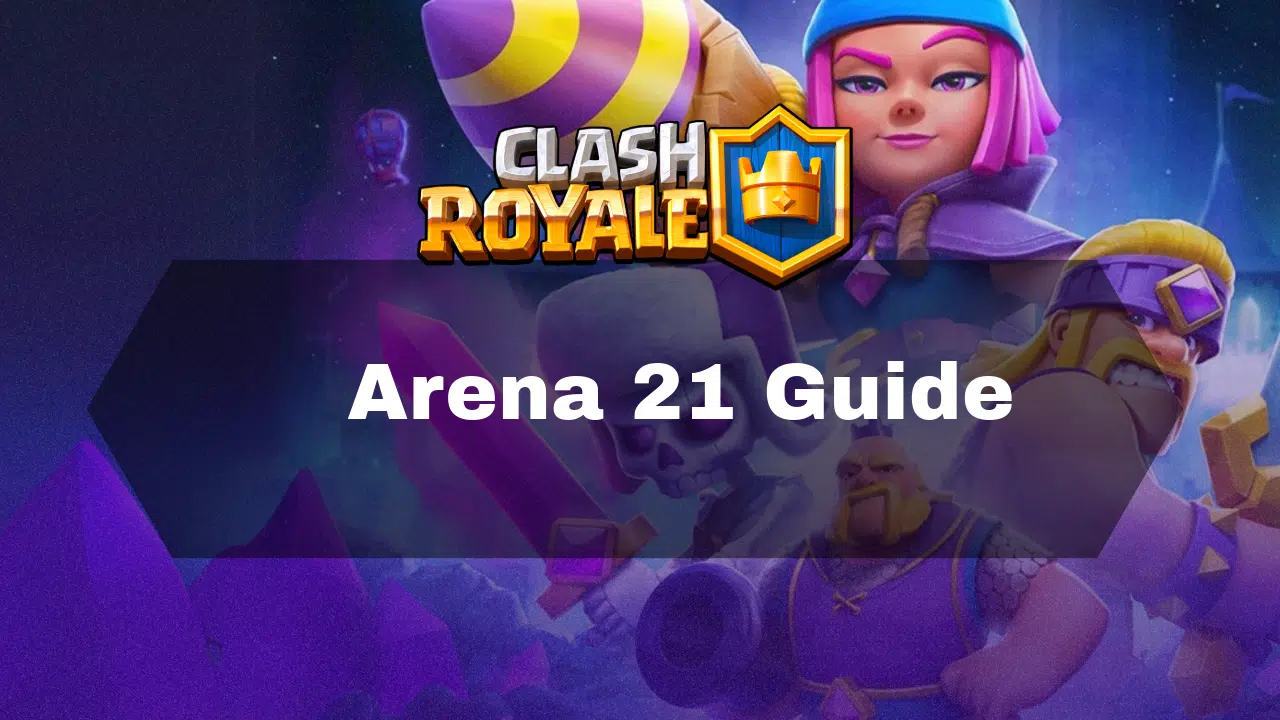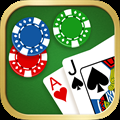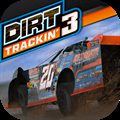
Introduction to Arena 21 (Clash Fest)
Arena 21, also known as Clash Fest, is one of the most challenging and rewarding arenas in Clash Royale, requiring players to reach 8,000 trophies to enter. Reaching this milestone unlocks significant rewards, and it marks a shift into more competitive gameplay. In this Clash Royale Arena 21 Guide, players face some of the most frequently used cards in the game, and decks that succeed here are often versatile enough to be effective in even higher arenas.
At this level, card levels are critical; having maxed-out cards can make a significant difference, even in a deck that isn’t considered top-tier. Evolving cards, with their special abilities, are particularly impactful, and many successful Arena 21 decks rely on these evolved cards to gain an advantage. When considering in-game purchases, such as the Arena 21 offers, it’s important to weigh their value, as overspending may not always be the most efficient way to progress.
There are various deck types that can thrive in Arena 21, including Cycle Decks, which focus on quickly rotating through cards to reach the win condition, Bait Decks that aim to draw out and counter the opponent’s responses, and Beatdown Decks, which use a tank to push while supported by other troops. Effective Elixir management is crucial in this arena—avoiding Elixir leakage and creating positive Elixir trades, such as defending higher-cost cards with lower-cost ones, can be the key to gaining an upper hand and securing victories.
Key Concepts for Arena 21
In Arena 21, card levels are crucial and often more impactful than simply having the “best” deck. While top-tier decks can be tempting, using a deck with maxed-out cards, even if it’s not considered the strongest, is generally more beneficial than using a meta deck with under-leveled cards. A deck you have upgraded will perform much better than one with lower-level cards, even if it’s not the current top-tier option.
Evolutions also play a significant role in successful decks at this level. Evolved cards, which alternate between their evolved and normal forms, offer unique abilities that can impact gameplay. Mastering the use of evolved cards like Bomber, Tesla, Skeletons, Knight, and Firecracker will give you an advantage over opponents who haven’t optimized these evolutions.
Joining a clan is essential for utilizing trade tokens, which allow you to upgrade lower-level cards. These tokens make it easier to get cards to a higher level, improving your deck’s overall effectiveness.
Deck archetypes in Arena 21 vary, but successful strategies often include Cycle Decks, Bait Decks, and Beatdown Decks. Cycle Decks aim to quickly cycle through cards to get back to your win condition, while Bait Decks focus on forcing the opponent to waste counters, creating opportunities for damage. Beatdown Decks rely on a strong tank to lead a push, supported by other troops.
Elixir management is vital in Arena 21. Efficient Elixir usage ensures you don’t “leak” Elixir, which happens when you don’t use it effectively, allowing your Elixir bar to stay full. Wasting Elixir can be a significant disadvantage.
Mastering positive Elixir trades is another essential concept. This involves defending against higher-cost cards with lower-cost cards to gain an Elixir advantage. For example, using Skeletons (1 Elixir) to counter a Musketeer (4 Elixir) results in a positive Elixir trade of +3, giving you more resources for future plays.
By mastering these key concepts, you’ll significantly improve your chances of success in Arena 21 and beyond.
Top Decks for Arena 21
In Arena 21, several decks have proven to be effective, each with its own unique playstyle and strategies. One popular option is the X-Bow Cycle Deck, which uses the X-Bow as the primary win condition. The deck focuses on quickly cycling through cards to get back to the X-Bow, with key cards including X-Bow, Bomber Evolution, Tesla Evolution, Prince, Fireball, Skeletons, Ice Spirit, and Log. The average Elixir cost for this deck is 2.9, making it fast and efficient.
Another strong option is the 2.6 Hog Cycle Deck, which relies on the fast Hog Rider for constant tower damage, supported by a low-cost cycle. Key cards include Hog Rider, Skeletons Evolution, Ice Spirit Evolution, Fireball, Cannon, Ice Golem, Log, and Musketeer. With an average Elixir cost of 2.6, this deck is one of the cheapest options for Arena 21.
The Hog Earthquake Cycle Deck focuses on the Hog Rider as the win condition, with Earthquake providing additional tower damage and support. The synergy between these cards allows for constant pressure on the opponent’s towers.
For a more tank-heavy approach, the Royal Hogs Giant Skeleton Cycle Deck uses Royal Hogs and Giant Skeleton to apply consistent pressure while controlling the arena. Key cards include Royal Hogs, Giant Skeleton, Bomber Evolution, Skeletons Evolution, Little Prince, Mother Witch, Royal Ghost, and Arrows, with an average Elixir cost of 3.4.
The Balloon Cycle Deck centers around the Balloon as the win condition, supported by a variety of cards to control the battlefield. Key cards include Balloon, Knight Evolution, Zap Evolution, Little Prince, Rage, Bomb Tower, Miner, and Skeletons, with an average Elixir cost of 3.4.
Other viable decks include the Mighty Miner Firecracker Hog, PEKKA Zap Bridge Spam, Double Elixir Loon Freeze, Splashyard with Barb Barrel, Goblin Ladder Demolisher Bowler Cage, and many more, each with its own strengths and synergies. Some decks, like Balloon Freeze + Archers and Ram Rider Mother Witch PEKKA, offer powerful combinations of offense and defense.
While these decks are considered strong, it’s important to remember that card levels play a significant role in success. It’s often better to play with a deck of upgraded cards, even if it’s not the most popular, rather than relying solely on the meta. The deck’s success largely depends on how well you manage your cards and how effectively you adapt to the evolving meta.
Advanced Strategies
In Arena 21, mastering advanced strategies is essential for success. One key concept is card cycling, which refers to the order in which cards return to your hand after being played. Understanding your own card cycle allows you to predict when specific cards will become available, helping you plan both your attacks and defenses. It’s also important to track your opponent’s cycle, as this helps you anticipate their moves and recognize when they lack counters to your win conditions. Fast cycle decks, such as the 2.6 Hog Cycle, are designed to cycle quickly back to the win condition, while slow cycles like the Royal Giant allow you to build larger pushes when you have an elixir advantage.
Elixir management is another critical aspect of advanced play. Avoid leaking Elixir by consistently using your Elixir efficiently, and always make sure you are doing something productive. By counting your opponent’s Elixir, you can determine the right moments to push; if your opponent spends a lot of Elixir, they will have less to defend with. Focus on making positive Elixir trades, such as defending against a Musketeer with Skeletons, which results in a +3 Elixir advantage. These positive trades can quickly build up and put you in a strong position.
Advanced placement is essential for effective defense and offense. Use buildings like the Cannon in the center to distract enemy troops and buy valuable time. Kiting is another key technique, where you pull enemy troops across the arena using low-cost units like the Ice Golem, allowing your towers to do more damage. When using evolved Bats, make sure you have a tank like the Royal Giant or Valkyrie to protect them and ensure they survive spells like Zap. Placing Bats or Evolved Bats in the center can also help distract Inferno Towers, preventing them from targeting your tank.
Pressure and aggression are important elements of successful gameplay. Use cheap cards to apply pressure at the bridge, forcing your opponent to respond. In Double Elixir, take advantage of the increased Elixir by placing more Royal Giants at the bridge and supporting them with troops like Bats or Firecracker. Valkyrie and Prince combinations can also bait out spells like Zap or Log, allowing your Prince to charge and deal damage. Predicting your opponent’s reactions is another essential skill; for example, if you know your opponent is likely to use Tornado to counter your Fisherman, placing it in a different spot can avoid that counter and still gain value.
Adapting to your opponent is crucial. Recognize their deck and spells and adjust your strategy accordingly. If you’re ahead on Elixir, you can cycle Royal Giants at the back, forcing your opponent to defend. If a certain strategy isn’t working, don’t hesitate to switch up your playstyle. Recognizing when to adapt is key to staying unpredictable and maintaining control over the game.
When dealing with matchups, understanding which decks fare better against others will help you improve your gameplay. Winning bad matchups often comes down to practice and experience. Sometimes, non-meta decks can also work well, as long as your cards are sufficiently leveled up.
Finally, evolved cards can provide a significant advantage in Arena 21. Don’t hesitate to use them when the opportunity arises. If you can’t use them offensively, use them defensively and cycle back to them. Pairing evolved cards with non-air-targeting troops ensures they survive longer, allowing them to support your pushes more effectively.
By mastering these advanced strategies, you’ll significantly improve your chances of success in Arena 21 and beyond, adapting to the changing meta and outplaying your opponents.
Importance of Evolutions
Evolutions play a crucial role in Clash Royale, particularly in Arena 21, where they offer significant advantages in both offense and defense. Evolved cards provide enhanced abilities, transforming them into much stronger and more versatile units. For example, evolved Barbarians gain a rage effect upon hitting a target, making them far more formidable. These evolutions are essential for success in higher arenas like Arena 21, as they can give you an edge over opponents who do not use or fail to properly counter them.
Managing evolved cards involves understanding their unique cycle, which alternates between their evolved and normal forms every time they are played. This requires careful planning to ensure you can use them effectively in both attacks and defenses. If an evolved card cannot be used offensively, it can be cycled back to and utilized defensively, offering flexibility. It’s important to prioritize evolving your cards as early as possible in the game. While it may not always be the ideal time, it’s often better to use an evolved card rather than hold onto it for too long and miss an opportunity.
Many successful decks in Arena 21 and beyond feature evolved cards, as their special abilities can drastically change the outcome of a match. For example, Hog Rider decks might include evolved Skeletons and Ice Spirit, while Hog Earthquake decks often feature evolved Firecracker and Valkyrie. When building a deck, it’s wise to include cards with evolutions to take advantage of their enhanced capabilities. However, evolving cards requires Evolution Shards, so collecting these shards should be a priority to upgrade your cards.
The meta in Clash Royale has been heavily influenced by evolutions, with some considered to be overpowered, like the evolved Firecracker, which can serve as a powerful win condition for just 3 Elixir. Countering these evolutions is an important skill, and while spells like Fireball and Log can be used against certain evolutions, it’s important to remember that using them against an evolved Firecracker may result in a negative Elixir trade.
The increased health of some evolved cards, such as the evolved Firecracker, contributes to their power and durability on the battlefield. Pairing these evolved cards with non-air-targeting troops ensures they won’t be targeted first, helping them survive longer and support your pushes more effectively.
Overall, evolutions are a key part of successful gameplay in Arena 21 and beyond. They enhance card abilities, require careful cycle management, and have a significant impact on deck building and the overall meta. Ignoring evolutions or failing to understand how to use them effectively can put you at a serious disadvantage.
Avoiding Common Mistakes
In Arena 21, there are several common mistakes players make that can significantly hinder their chances of success. One of the most common mistakes is ignoring card levels. Many players focus solely on using popular or “meta” decks without considering the importance of card levels. In reality, having higher-level cards can be more impactful than using the “best” deck. Cards with higher levels can withstand more damage and deal more damage, making them far more effective on the battlefield.
Poor elixir management is another major mistake. Allowing your Elixir bar to fill up without using it is known as “leaking” Elixir, and it’s a waste of valuable resources. Always try to be doing something with your Elixir, even if it’s just cycling cards. It’s also important to count your opponent’s Elixir to know when they’re low and when to push. Additionally, you should avoid negative Elixir trades, which happen when you use more Elixir to defend than your opponent used to attack. Defend with cheaper cards when possible to gain a positive Elixir trade.
Misusing spells is another error many players make. Spells should be used strategically, ensuring they provide value by hitting both enemy troops and the tower when possible. Overcommitting on spells can also be costly, especially if they aren’t needed at the moment. For example, using a Log against a Magic Archer when the opponent doesn’t have any other counter cards available can waste your spell and leave you vulnerable.
Neglecting card cycles can be a significant mistake in higher arenas. Keeping track of both your card cycle and your opponent’s allows you to predict when specific cards will be available, and helps you understand when to push. This also helps you play more aggressively when your opponent doesn’t have key counter cards in their hand. Poor placement of cards and buildings can also lead to missed opportunities in defense. For example, placing units directly behind a Bowler can be a mistake, as the Bowler may pull them away with a Tornado spell. Failing to use center placement for defense can also leave you vulnerable.
Another mistake is not adapting to your opponent’s strategy. If a certain tactic isn’t working, don’t keep repeating it. Recognizing your opponent’s deck and playstyle and adjusting accordingly can make all the difference. Identifying your opponent’s counters allows you to find creative ways to push and get damage. While many players focus on meta decks, it’s important to remember that non-meta decks can also be effective, as long as you understand how to play them and have leveled up your cards.
Failing to prioritize or understand the use of evolved cards is another common mistake in Arena 21. You should aim to get your evolutions early and use them effectively rather than holding onto them for too long. Underestimating your opponents can also lead to a loss. Always treat your opponents with respect and focus on every interaction, as each move can make a big difference. Lastly, not learning from your mistakes is a critical error. Acknowledge when you’ve misplayed or made a mistake, and use those experiences to improve your gameplay.
By avoiding these common mistakes, you can significantly improve your chances of success in Arena 21 and continue to progress in Clash Royale.
Conclusion
Arena 21 is a high-level competitive environment in Clash Royale, where success depends on skill, strategic thinking, and adaptability. Players must have a solid understanding of game mechanics, card interactions, and the ability to learn from their mistakes to thrive in this arena. Evolutions are a core part of the gameplay at this level, offering significant advantages when used correctly. Players must understand the unique abilities of evolved cards, their cycle mechanics, and how to counter them effectively. Ignoring evolutions can put players at a distinct disadvantage, as some evolutions are seen as game-changers.
While evolutions play a key role, mastering the fundamentals of the game is just as important. Effective Elixir management, card cycling, and optimal placement of troops and buildings are critical for both defense and offense. Spells should be used wisely to ensure maximum value, and deck composition should be balanced with a solid win condition and support cards. Understanding and controlling both your own and your opponent’s card cycles gives you the upper hand in anticipating plays and planning your attacks.
Adaptability is vital in Arena 21. Players must adjust their strategies based on their opponent’s deck and playstyle. Recognizing and learning from mistakes will help players improve and avoid repeating misplays. It is also important to experiment with different decks and strategies to remain unpredictable and keep improving. Additionally, players should not focus exclusively on the most popular meta decks but should instead focus on cards that are leveled up and comfortable to use.
Card levels are often more important than the specific deck you use, especially when facing opponents with high-level cards. Using cards that you have upgraded, even if they aren’t part of the latest meta decks, can provide a competitive edge. Another important aspect is not underestimating your opponents, regardless of their deck or perceived skill level. Also, players should maintain a strong defense while being mindful of offense, as over-reliance on one side can lead to vulnerabilities.
The meta in Clash Royale is constantly evolving, with new cards and evolutions changing the landscape. Staying informed and adapting to these changes is key to staying competitive.
Ultimately, success in Arena 21 comes down to personal playstyle, the cards you enjoy using, and your ability to adapt to the ever-changing dynamics of the game. By mastering the fundamentals, using evolutions effectively, and being adaptable, you’ll be able to meet the challenges of Arena 21 and continue progressing in Clash Royale.













